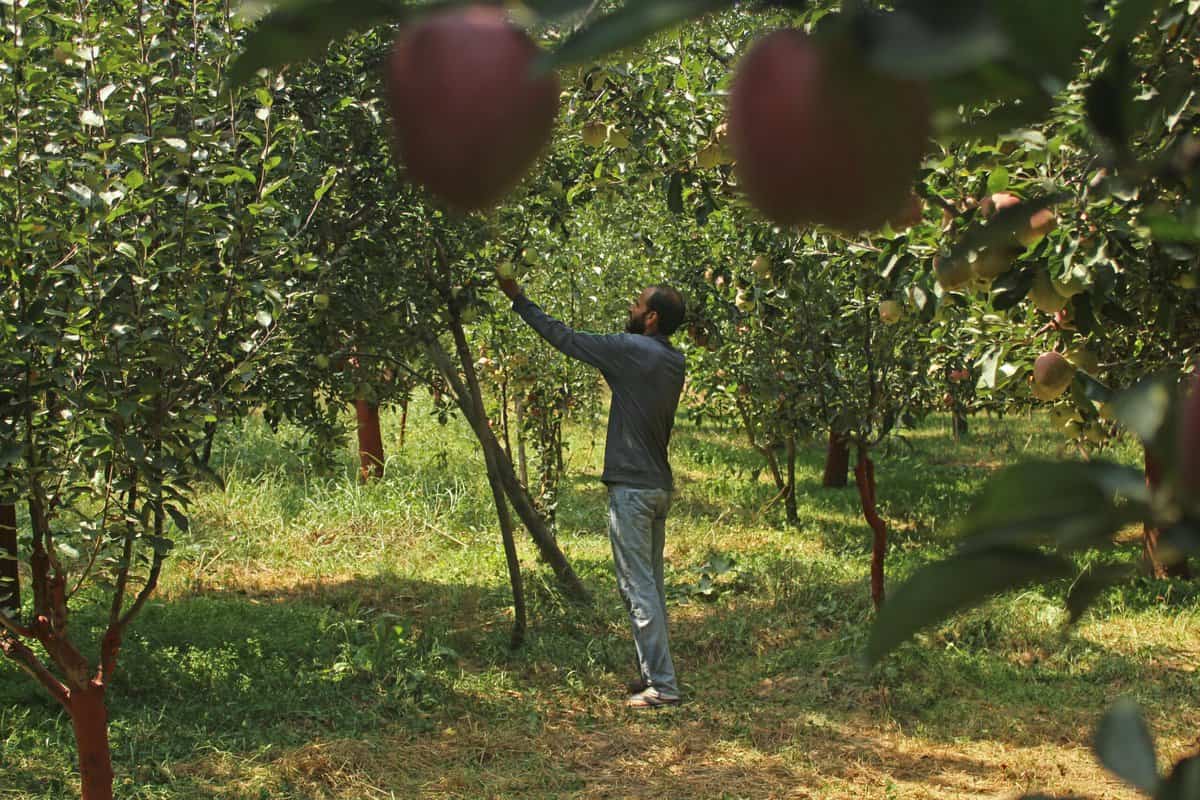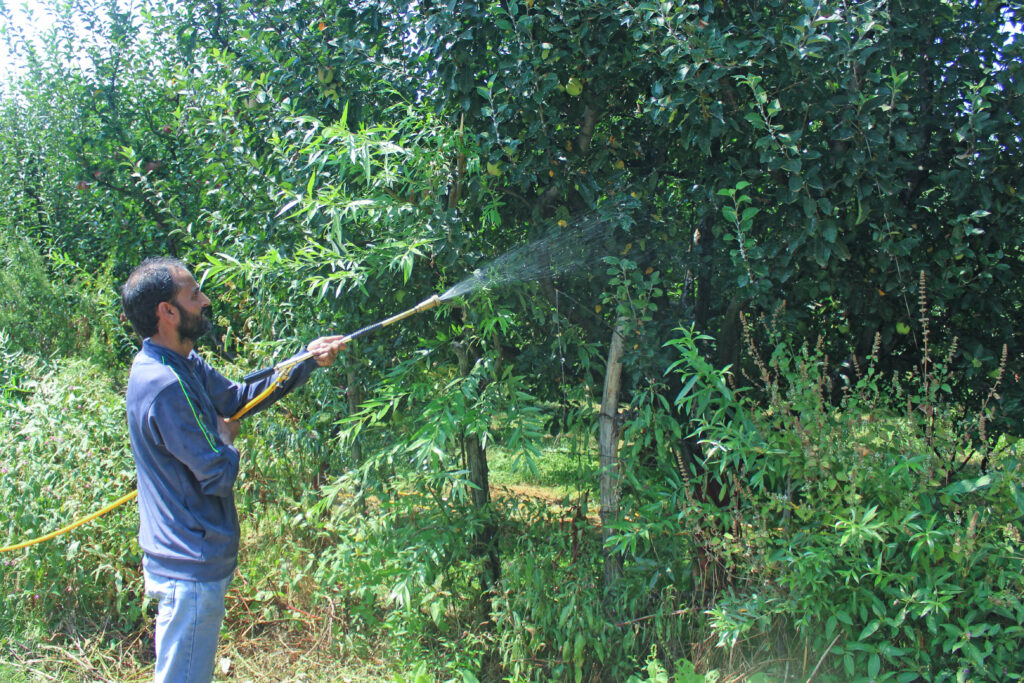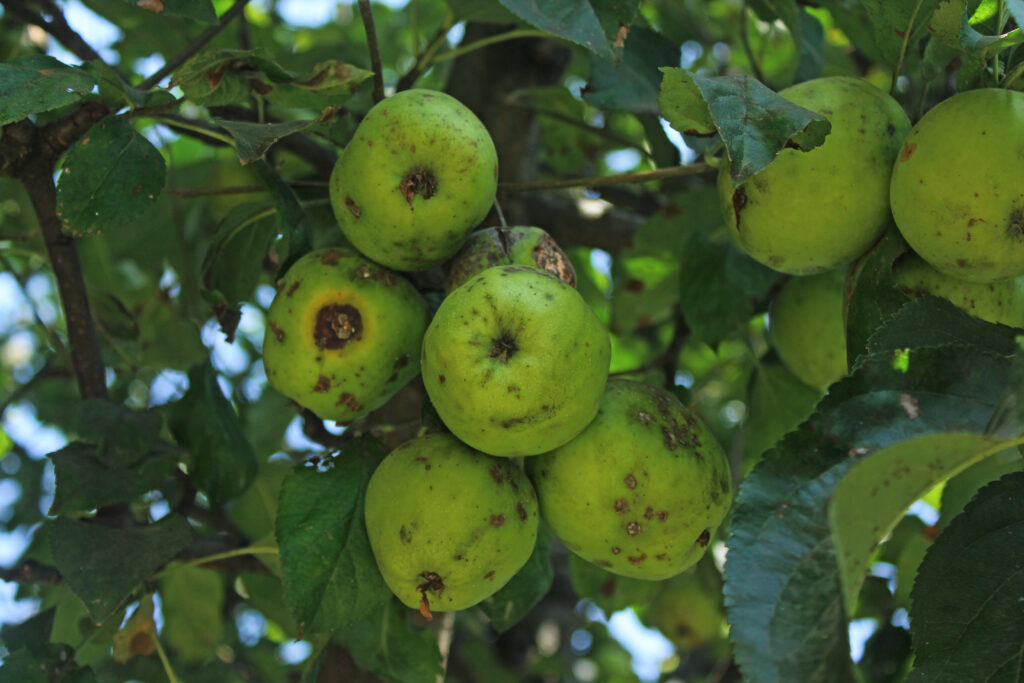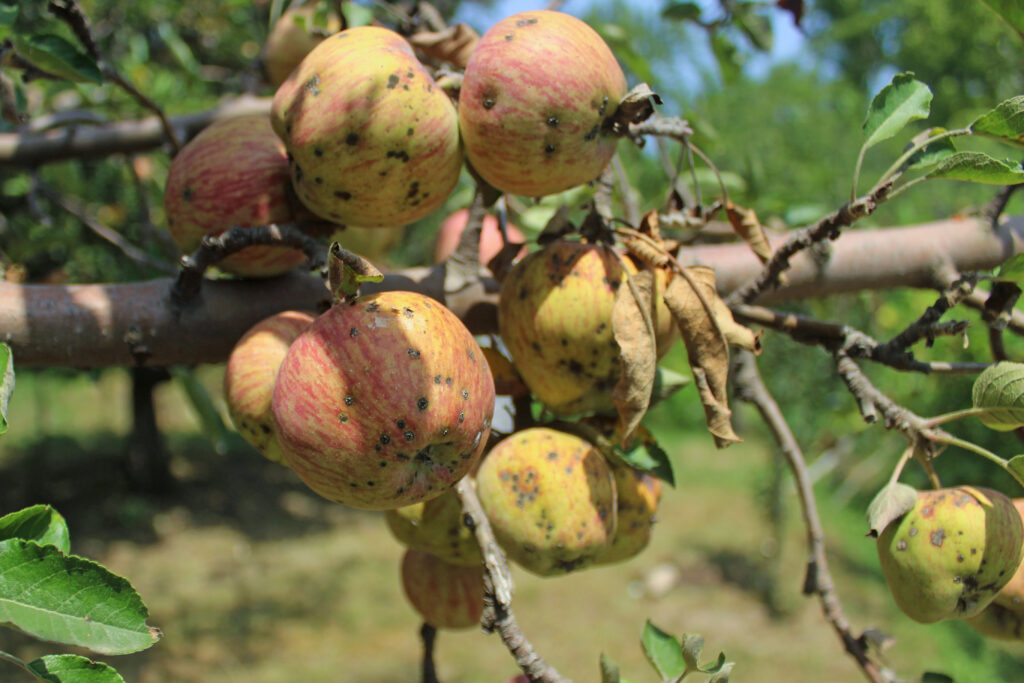
“An apple a day keeps a doctor at your doorstep,” quipped Irshad Ahmad (40), as he observed the condition of apples, playfully altering the famous proverb of “an apple a day keeps a doctor away.”
Apple growers in various parts of Central Kashmir find themselves deeply concerned due to the impact of scab-fungus venturia inaequalis on their apple crops, resulting in substantial losses for farmers. In the current season, nearly all growers from different regions of the Valley have reported the disease.
This issue is particularly severe in the Dachnipora area of Anantnag, South Kashmir, where orchardists have faced significant challenges related to the scab disease.
Apple cultivation is a cornerstone of the local economy in Kashmir, occupying 2.15 lakh hectares of land and contributing significantly to the region’s agricultural output. In the last season, the apple industry produced 21 lakh metric tons of apples, according to data provided by the J&K horticulture department.

Farmers mull axing apple trees
Irshad, a resident of Kremshore village in Central Kashmir’s Budgam district, is one of the affected farmers. His village boasts hundreds of hectares of apple orchards, cultivating various apple varieties like delicious, golden, and kullu.
Irshad himself cultivates apples on 12 kanals of land (approximately 0.607 hectares) and has made the difficult decision to cut down all his apple trees next season due to consistent losses over the past few years. He laments, “I am planning to remove all the apple trees and return to rice cultivation because I have been facing losses since 2020.”
Unpredictable weather & European imports
He explains further, “Just 20 days ago, I was getting Rs 650 per apple box. Now, with the scab disease affecting the fruit, I am willing to sell it at half the price. However, the fruit’s condition is so poor that no one is willing to buy it. I have invested lakhs in this orchard and was expecting at least Rs 5 lakhs in returns, but now I fear I will have to let this fruit rot here.”
Irshad attributes this issue to substandard pesticides and unpredictable weather conditions, as well as the import of apple trees from Europe without adequate quarantine measures. He notes, “The apple trees imported from other countries lack proper quarantine procedures, as they are distributed by contractors with minimal involvement from government agencies.”
Substandard pesticides
In the Kashmir valley, the prices and quality of pesticides remain unchecked. Pesticides that once cost Rs 400 are now sold for Rs 800. This unchecked pesticide business has placed a significant economic burden on farmers and orchardists, who often receive substandard products at higher prices, resulting in considerable damage to their crops.
Another farmer from Charar-i-Sharief village in Budgam district attributes the scab disease to unseasonal rainfall in July during the blossom period, which affected the apples.
However, farmers in Central Kashmir maintain that they followed the horticulture department’s instructions regarding pesticide usage, yet it was insufficient to prevent scab disease.

Officials blame farmers
The horticulture department of Kashmir refutes the claims made by farmers, instead attributing the scab disease to negligence on the part of the farmers. Mohammad Amin, a district-level subject matter specialist with the department, explains, “Scab in fruit is due to farmer negligence. We have instructed farmers through various awareness programs to apply pesticides/fungicides within 12 days after rainfall, especially following rain. However, many times, they delay the process, resulting in their apple produce becoming infected.”
These pesticides are supplied to licensed shopkeepers only after rigorous testing, conducted both within and outside the valley. Amin notes that some test reports take up to a month to arrive.
Regarding compensation for affected farmers, Amin clarifies that the department cannot currently commit to compensation. However, they are in the process of establishing a crop insurance system, which will provide benefits to farmers in such situations.

